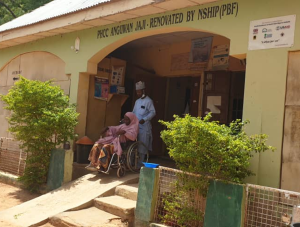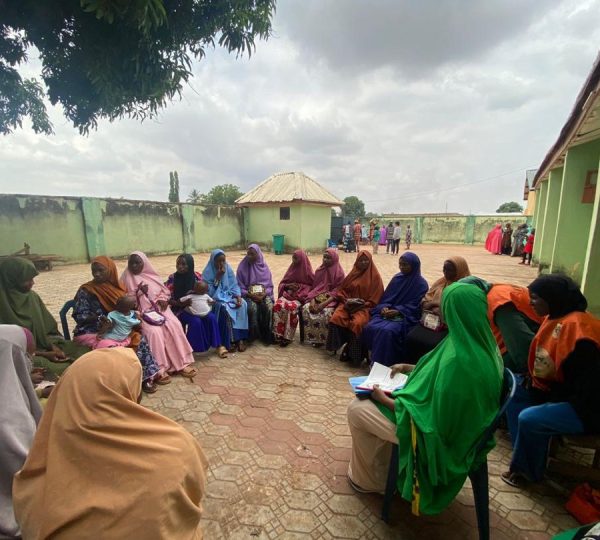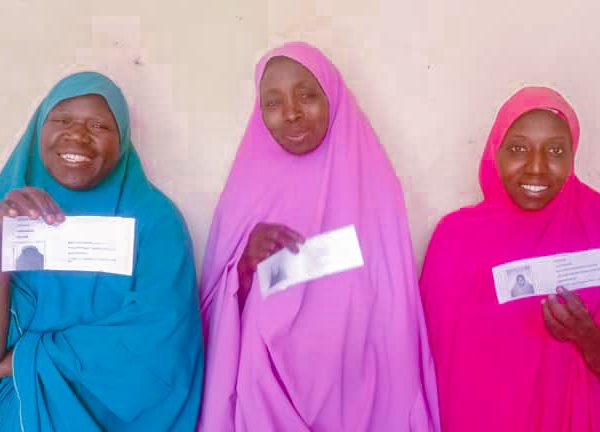Improving Healthcare Access for People with Disabilities: SFH’s HeRON Project Takes Strides
By Adamu Bashir Bashir, Abare Galadima, Dr Susan Okonko, Musa Ibrahim Biu, and Rejoice Gapani.
People with disabilities often face an array of health disparities rooted in social and structural challenges like stigma, discrimination, poverty, and exclusion from education and employment opportunities, further compounded by obstacles within the healthcare system itself.
To address the challenges faced by individuals with disabilities during accessing services at the Primary Health Care Centers, the Society for Family Health (SFH) under the USAID-funded project titled Health Resilience of North East Nigeria (HeRON) conducted a disability inclusion assessment in November 2022. The assessment’s findings highlighted several architectural and layout issues within Primary Health Care Centers that impeded the access of individuals with disabilities. These challenges encompassed the presence of multiple steps from entrances to service areas, narrow doorways posing difficulties for wheelchair passage, inadequate waiting area space for wheelchairs, and a lack of staff training in emergency responses particularly for persons with disability. Moreover, assembly points were inaccessible for individuals with mobility impairments, drinking water facilities were not designed to cater to people with disabilities, and staff/security were unaware of policies prioritising the treatment of such individuals. These collective barriers discouraged numerous individuals with disabilities from seeking healthcare services.
In response to these significant challenges, SFH, through its USAID-funded HeRON project, took proactive steps. They empowered the Ward Development Committee with advocacy, resource mobilisation, and fundraising skills, and this committee, armed with SFH training, successfully mobilised resources to construct ramps in SFH-HeRON supported facilities. Moreover, they worked closely with these facilities to ensure that individuals with disabilities received priority, optimising pathways for wheelchair, trolley, and mobile bed movement. The impact of these efforts extended beyond the healthcare facilities, as the committee also launched community awareness campaigns to inform residents about these positive changes. The result has been a notable increase in the number of individuals with disabilities accessing healthcare services.
One heartwarming example is that of Fatima Musa, who has lived with a disability since birth. She expressed her gratitude for the constructed ramps, noting that they have significantly improved her mobility within the healthcare facility, stating, “I can now move with ease in the facility because of the ramps constructed.” This demonstrates the tangible benefits of HeRON’s initiatives to enhance healthcare accessibility for people with disabilities in North East Nigeria.





